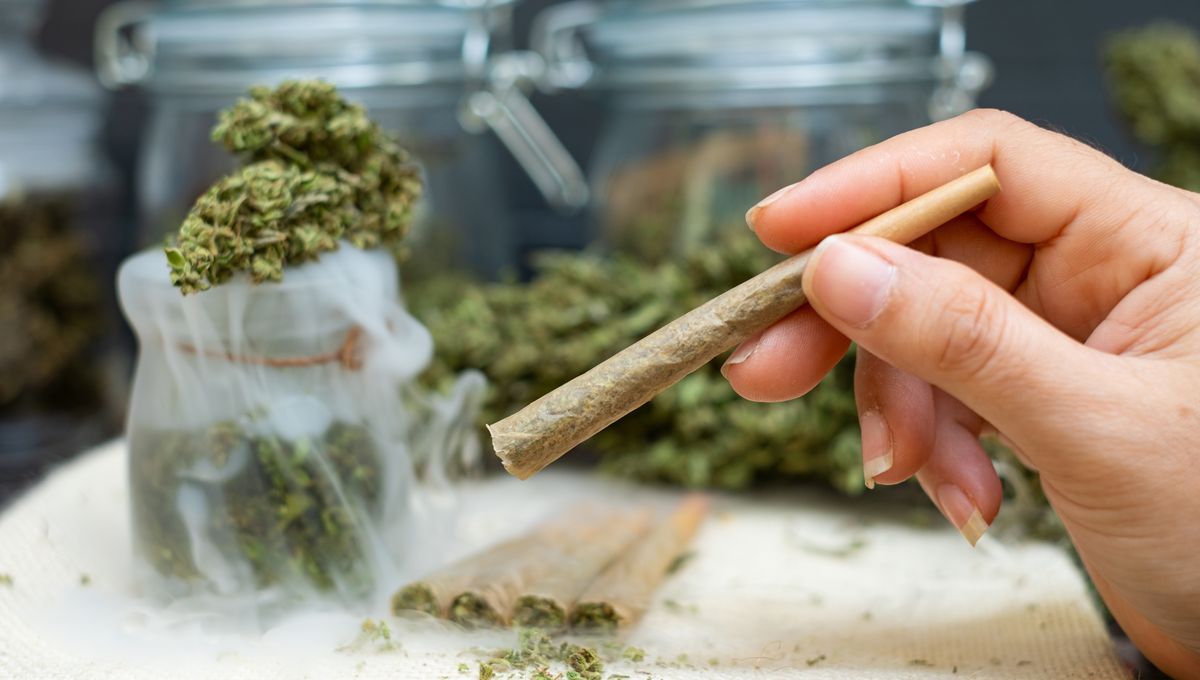
High-potency cannabis alters users’ DNA in ways that weaker strains don’t, new research has revealed. In particular, ultra-strong weed appears to interfere with genes related to immunity and cellular energy production, and leaves a distinct mark on the DNA of cannabis users who go on to develop psychosis.
The study authors analyzed blood samples from 682 people in order to examine the impact of cannabis use on DNA methylation, which refers to a chemical process that influences the activation of genes. In total, 188 participants identified as current cannabis users, with a subset of these saying they consumed high-potency strains with a delta-9-tetrahydrocannabinol (THC) content higher than 10 percent.
Speaking to IFLScience, study author Professor Marta di Forti from King’s College London explained that “when you look at cannabis which has 10 percent or above of THC, you are looking at at least a five-fold increase in the risk of developing a psychotic disorder compared to people that have never used.”
For their primary analysis, the researchers looked for differences in DNA methylation across the entire genome between people who consume cannabis and those who don’t. “What we found, in a nutshell, was that when you look at current cannabis users, we find a distinct mark on DNA methylation, particularly when we look at immune system genes and mitochondrial genes, which are related to energy production at a cellular level,” said di Forti.
However, while all pot use appears to be linked to certain epigenetic changes, “the effect of high-potency cannabis was distinct compared to looking at general cannabis use,” she said. For instance, the mitochondrial genes CAVIN1, MCU, and ECHDC3 were all affected in participants who regularly used products containing more than 10 percent THC.
“We postulate that such deficiencies in mitochondrial function could explain some of the sequelae of long-term cannabis use, including elevated risk of psychosis which has been associated with defects in mitochondria function,” write the study authors in their new paper.
Taking things a step further, the researchers compared these cannabis-linked epigenetic changes in patients who had experienced a psychotic episode and those who had never suffered psychosis. Overall, 239 of their participants had undergone first episode psychosis, with the remaining 443 acting as healthy controls.
“We found that the effect that current cannabis use has on people with first episode psychosis at the level of DNA methylation is different to that of current cannabis users who don’t have a psychotic disorder,” said di Forti. “Now this is interesting to us because it suggests that the biological effect of cannabis use in people with psychosis – at least at the DNA methylation level – is different from the one you find in people who are still using cannabis quite heavily, but don’t come to any harm in terms of psychosis.”
According to di Forti, these insights may one day pave the way for the development of screening programs, in which “you might use genetic and epigenetic [markers] to identify people who should be very careful about using cannabis heavily,” or for whom medical cannabis may be contraindicated.
More broadly, she explained that these findings bring into focus the need for greater nuance in current discourses around cannabis decriminalization and legalization, particularly at a time when super-potent strains are beginning to appear in some dispensaries. “My concern is that the debate on cannabis is very polarized, as people either see just the benefits – which indeed they are – or the negative consequences,” said di Forti.
“And I think we need to reconcile the two and say, well, actually you can have something that is extremely beneficial, but which, if it is abused, can go from being pleasant and enjoyable and medical to harmful and toxic.”
The study is published in the journal Molecular Psychiatry.
Source Link: High-THC Cannabis Leaves A Unique Signature On Users’ DNA